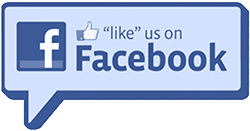The answer might be yes. Not only Russians fake news, ads, and Facebook posts. Travel sellers do also.
Marketing,vague language, scare headlines can destroy your travel plans and make you lose mo ney.
There are many ways false information reaches you. Here are some red flags listed by The Women’s Travel Group:
Scare articles. Writers need scare headlines like the one on this blog post. For accurate information, go to the US State Dept. which outlines dangers and concerns in parts of the world. Mexico is often singled out yet State does not warn us about all of Mexico, just small areas where crime gangs exist. Ironically parts of our country are on European warning lists as frightening as ours. The United Arab Emirates, Bahamas, France, United Kingdom, Canada, New Zealand and Germany are among those cautioning U.S.-bound travelers.
Propaganda about natural disasters. Recently, the government of Bali accused competitor regions and countries of disseminating hoaxes about the danger of volcanic activity in order to benefit from the island’s recent troubles. Did you know countries spread rumors?
Sponsored ads’ headlines appear to be real news. Advertisers overwhelmingly believe that this fake news erodes the trust of real advertisers. Sponsored ads next to real information is confusing.
Exaggeration gets our attention. Your iPads and phones must be in checked luggage. The initial ban trumpeted everywhere applied only to 8 countries’ non stop routes to the US. That is a very small percentage of total flights here. Within weeks, it was lifted for almost all airlines and destinations.
Inflated Facebook likes. If you want opinions of how much a travel company is liked, try contacting some of the people commenting in or liking the site. They might be what we now know as bots. Recently we were made aware of a women’s travel company that overnight had 20,000 likes. Obviously they bought these likes and they were fake.
Fake photos are used. Digging into photos of a travel site, do you see the same people all the time? If so, the photos are staged or the company only has 6 clients.
Office voicemail fakes. Does the company voicemail take a long time to forward to another phone? This delay usually means they do not have an office You might be speaking to a part timer on the tennis court on a cell?
Linkedin Profiles are exaggerated even misleading. Once you look at the background of the individual selling travel, jump to their links and referrals to see if important industry people link to them.
Licenses can be faked. If a travel seller is certified by IATAN, don’t take their word for it. Check with IATAN itself. Similarly do that with ASTA, travel insurance licenses and any industry group shown on their site. Logos can be a copied easily and organizations do not have the time to check.
The Women’s Travel Group hopes their tips are useful. Please share them with friends or contact us with more smart ideas.
Phyllis@thewomenstravelgroup.com www.thewomenstravelgroup.com/tours/ for our women only small group itineraries.

